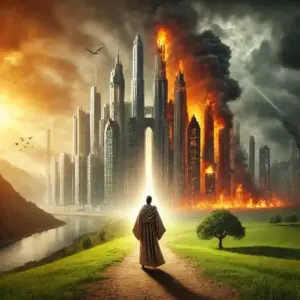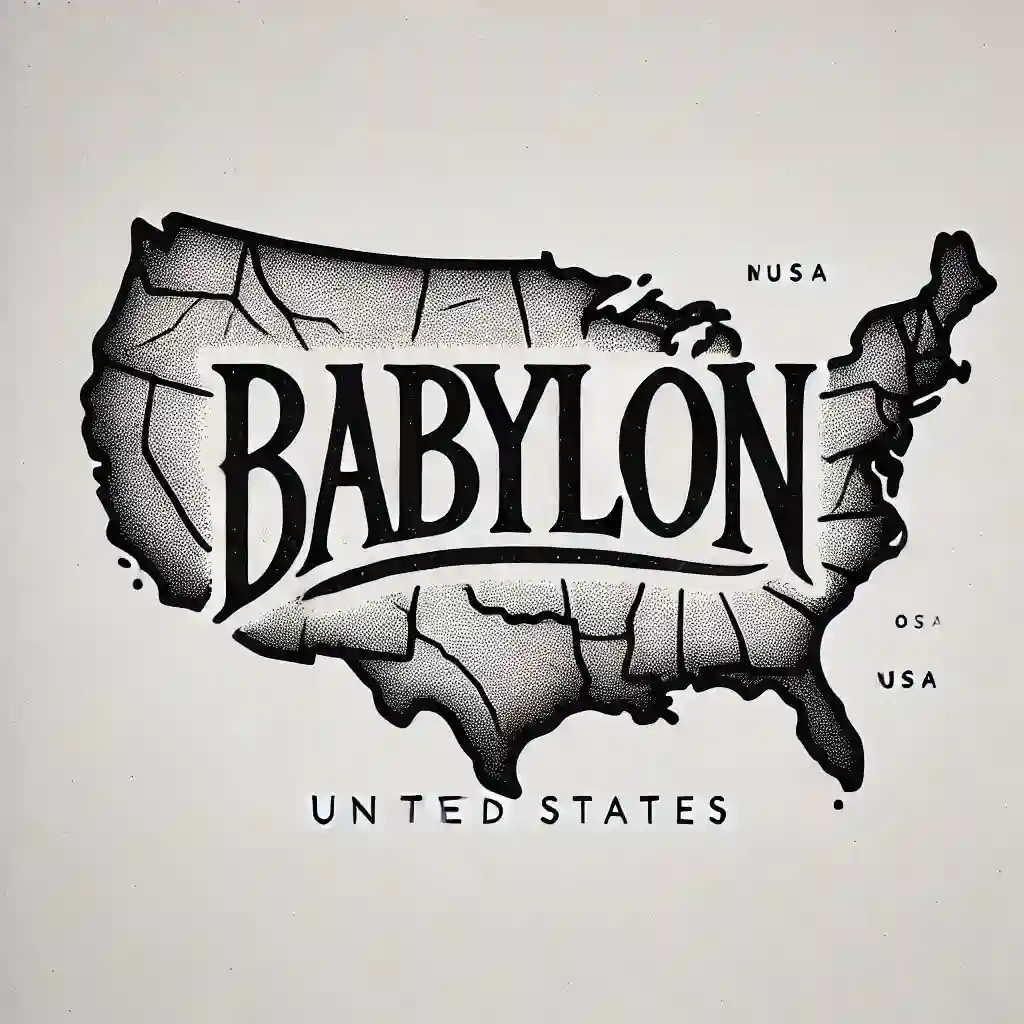The question of whether America is the Great Babylon described in Jeremiah 50–51 and Revelation 17–18 has been widely debated, particularly among prophecy scholars and those who interpret biblical prophecy through a modern lens, especially in relation to America in Prophecy.

This question opens up a broader discussion about the implications of prophetic interpretation and how it shapes the understanding of contemporary geopolitics, particularly the role of America in Prophecy. The Bible has been referenced throughout history to make sense of current events, and the notion of America as a modern Babylon serves as a lens through which many view the nation’s influence on the world stage. In this context, it is important to dissect the characteristics attributed to Babylon in scripture and compare them with America’s global role today.
In addition to the judgment of Babylon, Jeremiah emphasizes the reasons behind God’s decision to bring about such destruction. This aspect of prophecy serves as a warning to any nation, including America in Prophecy, that embraces similar practices of sin, idolatry, and moral decay. By understanding this historical context, readers can better appreciate the weight of the prophetic message for America today.
Moreover, the ancient Babylonian Empire was known for its impressive architectural achievements and cultural advancements. These aspects can be juxtaposed with America’s technological innovations and cultural exports, raising the question: does prosperity come with moral responsibility? The correlation between wealth and ethical conduct, especially in the context of America in Prophecy, is a recurrent theme in both Jeremiah’s writings and contemporary discussions surrounding national identity.
Understanding the symbolism in Jeremiah 50-51 can also lead us to further examine the spiritual implications of America’s role in the world and its relevance in America in Prophecy. The text speaks of oppression and exploitation, which prompt reflections on social justice and the treatment of marginalized communities. By applying these ancient lessons to modern contexts, readers can draw parallels that inform a deeper understanding of America’s societal challenges.
America in Prophecy: A Timely Examination
Jeremiah 50 and 51 contain prophecies of Babylon’s destruction. Historically, this refers to the ancient Babylonian Empire, which fell to the Medes and Persians in 539 B.C. However, some scholars argue that these chapters also contain prophetic foreshadowing of a future Babylon—an entity that will be judged in the last days.
Several key descriptions in Jeremiah 50–51 include:
- A wealthy, powerful nation that dominates others (Jer. 50:23).
- A land of mingled peoples (Jer. 50:37).
- A nation that dwells by many waters (Jer. 51:13).
- A nation known for its arrogance and idolatry (Jer. 50:31, 38).
Some believe these verses transcend ancient Babylon and point to a future superpower that mirrors these characteristics.
Revelation 17–18: Mystery Babylon
Furthermore, as we consider the implications of being a ‘wealthy, powerful nation,’ it is crucial to acknowledge the responsibilities that come with such status. Nations that enjoy prosperity must grapple with the ethical dimensions of their influence in global affairs, fostering diplomatic relations that are equitable and just. This moral imperative becomes even more pressing when we consider the prophetic warning of judgment that follows arrogance and idolatry.
The concept of ‘Mystery Babylon’ expands the dialogue on global systems of power and influence. It suggests that the corruption of nations is not merely a result of their individual failings but part of a larger, interconnected web of political, economic, and cultural forces that leads societies astray. This perspective invites readers to consider the ways in which America participates in, and even perpetuates, a global culture that often prioritizes materialism over spiritual values.
In Revelation 17 and 18, “Mystery Babylon” is described as:
- A global economic and political powerhouse (Rev. 18:3).
- A nation or system that spreads immorality (Rev. 17:2, 18:3).
- A nation whose destruction comes suddenly (Rev. 18:8–10).
- A place of great wealth and materialism (Rev. 18:11–19).
- A corrupting influence on the world (Rev. 17:4–6).
Many see a connection between Revelation 17–18 and Jeremiah 50–51, suggesting that they describe the same future entity.
Is America Babylon?
Some modern prophecy teachers argue that America fits the description of Babylon in a prophetic sense because:
- It is a global economic and military superpower.
- It is a nation of mixed peoples (“mingled people” – Jer. 50:37).
- It is heavily involved in global trade (Rev. 18:11–13).
- It influences the world through its culture, media, and policies.
- It is a nation by “many waters” (Jer. 51:13; America has the Atlantic, Pacific, and Gulf of Mexico).
However, others argue that Babylon in Revelation is more of a global system rather than a single nation. They suggest that “Mystery Babylon” could represent a worldwide political, religious, and economic system led by the Antichrist.
To further substantiate the claim that America embodies characteristics of Babylon, one can analyze the nation’s media landscape. The entertainment industry, often critiqued for its promotion of hedonism and moral ambiguity, parallels the biblical descriptions of Babylon’s immorality. This cultural export can have profound effects on other nations, potentially leading to a domino effect of moral decline globally.
In examining America’s place in this prophetic framework, it is also essential to highlight the role of the American church in this discourse. Many Christian leaders advocate for a return to biblical principles as a remedy for societal issues. They emphasize the necessity for repentance and moral renewal, echoing the calls to action found in the prophetic books. This brings a spiritual dimension to the discussion of America’s identity and its possible role as modern Babylon.
Conclusion: America as Babylon?
While America shares some similarities with Babylon as described in Jeremiah 50–51 and Revelation 17–18, there are multiple interpretations:
- Literal Babylon Rebuilt – Some believe Babylon (in modern Iraq) will be rebuilt and become the end-times power.
- America as Babylon – Some argue that America, with its global dominance and moral decline, is the most fitting modern fulfillment.
- A Global System – Others see Babylon as a global political and economic system, possibly centered in a revived Roman Empire (Europe).
If America is not explicitly Babylon, it could still be part of the Babylonian system—a global network of commerce, culture, and corruption that aligns with end-times prophecy.
Congregation of YHWH Jerusalem: Correspondence Course: Who is Babylon
As we explore these interpretations, it becomes apparent that the conversation surrounding America’s role in prophecy is multifaceted. It requires a careful consideration of historical context, cultural analysis, and ethical implications. Engaging with these themes allows for a more profound understanding of how scripture informs contemporary issues and encourages readers to reflect on their moral responsibilities.
Finally, the question of whether America is Babylon invites us to examine our values and actions as a society. It is a call to critically assess the legacy we are creating for future generations. Are we fostering a culture that values justice, compassion, and humility, or are we replicating the mistakes of ancient civilizations? This introspection is vital as we navigate the complex terrain of modern life while striving to align with principles reflective of a just society.
Discover more from Master Yahshua Messiah
Subscribe to get the latest posts sent to your email.

